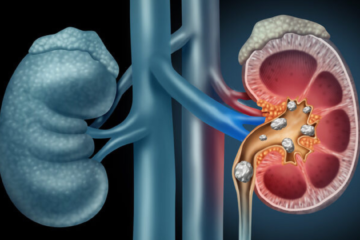
Fertility, the ability to conceive and bear children, is a profound aspect of human life. For individuals and couples seeking to start a family, understanding the factors that influence fertility is of utmost importance. Among the myriad of elements affecting reproductive health, the role of sleep is gaining increasing attention in scientific research. In this blog, we will explore the fascinating relationship between sleep and fertility, examining how sleep quality, duration, and circadian rhythms can significantly impact reproductive hormones, menstrual cycles, and overall fertility.
The Interplay of Sleep and Hormonal Regulation
Hormonal balance plays a pivotal role in reproductive health for both men and women. Sleep disturbances can disrupt this delicate hormonal equilibrium, negatively affecting fertility in various ways.
Female Fertility
Women’s menstrual cycles are tightly regulated by hormones, such as estrogen and progesterone. Sleep disruptions can lead to alterations in hormone secretion, potentially resulting in irregular menstrual cycles or anovulation (lack of ovulation). Studies suggest that women with irregular sleep patterns may experience difficulties conceiving.
Additionally, inadequate sleep can disrupt the release of luteinizing hormone (LH), a key hormone responsible for triggering ovulation. Irregular LH secretion can hinder the timely release of eggs from the ovaries, reducing the chances of conception.
Male Fertility
Men are also not exempt from the impact of poor sleep on fertility. Sleep disturbances have been associated with reduced testosterone levels, which can affect sperm production and quality. Lower testosterone levels may lead to decreased sperm count and motility, making it more challenging for couples to achieve pregnancy.
The Role of Sleep in Reproductive Health
- Polycystic Ovary Syndrome (PCOS)
PCOS is a common hormonal disorder affecting many women of reproductive age. Sleep disturbances and sleep apnea have been associated with a higher prevalence of PCOS. This condition can lead to irregular menstrual cycles and ovulation issues, further affecting fertility.
- Erectile Dysfunction
Men experiencing chronic sleep deprivation are more likely to encounter issues with erectile dysfunction (ED). The link between sleep and ED is believed to be related to decreased testosterone levels and impaired blood flow to the genital area.
- The Influence of Circadian Rhythms
The human body operates on a 24-hour internal clock known as the circadian rhythm. This rhythm influences various physiological processes, including hormone release, body temperature fluctuations, and sleep-wake cycles. Disruptions to the circadian rhythm, such as irregular sleep schedules or shift work, can profoundly impact fertility.
- Shift Work and Fertility
Shift work, particularly during the night, has been associated with lower fertility rates and an increased risk of miscarriages. The irregular sleep patterns and disturbance of the circadian rhythm can lead to hormonal imbalances, affecting the timing of ovulation and reducing sperm quality in men.
- Melatonin and Reproduction
Melatonin, a hormone produced during the night, is closely linked to the circadian rhythm and has been found to play a role in reproductive health. Studies indicate that melatonin may protect eggs and sperm from oxidative stress, supporting overall fertility. However, disturbances in the sleep-wake cycle can affect melatonin production, potentially impairing reproductive processes.
The Vicious Cycle of Stress and Sleep
Stress is an inevitable part of modern life, but chronic stress can have severe consequences for both sleep and fertility. Stress activates the body’s fight-or-flight response, leading to increased levels of cortisol, a stress hormone. Elevated cortisol levels can disrupt sleep patterns, leading to insomnia or poor sleep quality.
On the other hand, poor sleep can also contribute to increased stress levels, creating a vicious cycle that can have detrimental effects on reproductive health. Managing stress and adopting healthy sleep habits can break this cycle and positively impact fertility.
Tips for Improving Sleep and Fertility
Improving sleep and fertility go hand in hand, as a well-rested body is better equipped to support reproductive health. Here are some detailed tips to enhance both sleep quality and fertility:
Establish a Consistent Sleep Schedule:
- Go to bed and wake up at the same time every day, even on weekends. This helps regulate your body’s internal clock and improves the quality of your sleep.
Create a Relaxing Bedtime Routine:
- Develop a calming pre-sleep routine to signal to your body that it’s time to wind down. This can include activities such as reading a book, taking a warm bath, or practising relaxation techniques like deep breathing or meditation.
Limit Screen Time Before Bed:
- The blue light emitted by electronic devices can disrupt the production of melatonin, the sleep hormone. Avoid using screens (phones, tablets, computers, TVs) at least an hour before bedtime.
Create a Sleep-Friendly Environment:
- Make your bedroom a sleep haven by keeping it cool, dark, and quiet. Consider using blackout curtains, earplugs, or a white noise machine to block out distractions.
Watch Your Diet and Hydration:
- Avoid heavy meals, caffeine, and excessive fluid intake close to bedtime. Eating too much or drinking too much can disrupt your sleep and lead to discomfort during the night.
Stay Active, but Time Your Exercise Wisely:
- Regular physical activity can improve sleep quality but try to finish exercising at least a few hours before bedtime to give your body time to wind down.
Manage Stress:
- Chronic stress can wreak havoc on both sleep and fertility. Engage in stress-reducing activities such as yoga, mindfulness meditation, or spending time in nature.
Limit Naps:
- While short power naps can be refreshing, avoid long naps during the day, as they can interfere with your ability to fall asleep at night.
Invest in a Comfortable Mattress and Pillow:
- A comfortable and supportive mattress and pillow are essential for promoting restful sleep. Choose ones that suit your individual preferences and needs.
Avoid Alcohol and Smoking:
- Alcohol and smoking can disrupt sleep patterns and negatively impact fertility. Limit or eliminate these habits for improved overall health.
Communicate with Your Partner:
- Maintain open communication with your partner about your sleep schedules, routines, and any sleep-related concerns. A supportive and understanding partner can help create a conducive sleep environment.
Keep a Sleep Journal:
- Keep track of your sleep patterns, including the time you go to bed, how long it takes to fall asleep, and any factors that may affect your sleep. This can help identify potential sleep disruptors.
Seek Professional Help if Necessary:
- If you consistently struggle with sleep or suspect an underlying sleep disorder, consider seeking help from a sleep specialist or healthcare provider.
Monitor Ovulation and Fertility Signs:
- If you are trying to conceive, track your menstrual cycles, and monitor fertility signs like basal body temperature and cervical mucus to identify your most fertile days.
Consult a Fertility Specialist:
- If you have been trying to conceive without success for an extended period, consider consulting a fertility specialist to assess potential fertility issues and explore appropriate treatments.
Remember that the journey to improved sleep and enhanced fertility may take time and patience. Adopting these tips and making lifestyle adjustments can have a positive impact on both your sleep quality and reproductive health.
Conclusion
Sleep plays a crucial role in fertility for both men and women. By understanding and prioritizing the connection between sleep and reproductive health, individuals and couples can take proactive steps to improve their chances of conceiving. From optimizing sleep quality and duration to embracing healthy sleep habits, a good night’s sleep can significantly enhance the journey towards parenthood. So, as you embark on the path of building your family, don’t forget to give sleep the attention it deserves – for it might hold the key to your fertility dreams.
Dr. Sumit Sharma is an experienced urologist, andrologist, and kidney transplant surgeon with over 20 years of clinical experience. He is the founder of the Department of Urology at multiple hospitals in Gurgaon and has established successful kidney transplant programs across the city.
Here are some frequently asked questions about the influence of sleep on fertility:
Q. How does sleep affect fertility in women?
Poor sleep quality and duration can disrupt hormonal balance, leading to irregular menstrual cycles and anovulation. Sleep disturbances may also affect the release of luteinizing hormone (LH), which is essential for triggering ovulation.
Q. Can lack of sleep lead to infertility in men?
Yes, inadequate sleep can result in lower testosterone levels, which can affect sperm production and quality. Reduced testosterone levels may lead to decreased sperm count and motility, impacting male fertility.
Q. Does shift work affect fertility?
Yes, shift work, particularly during the night, can lead to lower fertility rates and an increased risk of miscarriages. Irregular sleep patterns and circadian rhythm disruptions may cause hormonal imbalances, affecting fertility.
Q. Who is the best Urologist in Gurgaon?
Dr. Sumit Sharma is an experienced urologist, andrologist, and kidney transplant surgeon with over 20 years of clinical experience. He is the founder of the Department of Urology at multiple hospitals in Gurgaon and has established successful kidney transplant programs across the city.
Q. Can stress-related sleep problems affect fertility? Yes, chronic stress can disrupt sleep patterns and lead to issues like insomnia or poor sleep quality. Stress-related sleep problems can negatively affect fertility in both men and women.
Q. Is melatonin linked to reproductive health?
Melatonin, a hormone produced during the night, is closely associated with the circadian rhythm and may play a role in reproductive health. It is believed to protect eggs and sperm from oxidative stress, supporting fertility.
Q. What are some lifestyle changes that can improve sleep and fertility?
Maintaining a consistent sleep schedule, creating a bedtime routine, limiting screen time before bed, managing stress, and maintaining a sleep-friendly environment are some lifestyle changes that can enhance both sleep and fertility.
Q. How does sleep impact male sexual health?
Poor sleep quality and sleep disturbances can lead to erectile dysfunction (ED) in men, potentially due to decreased testosterone levels and impaired blood flow to the genital area.
Q. Can better sleep habits improve the chances of conception?
Yes, adopting healthy sleep habits can positively impact fertility by promoting hormonal balance, regular menstrual cycles, and optimal sperm quality, increasing the chances of successful conception.
Q. When should I seek help for sleep-related fertility issues?
If you have been struggling with sleep problems or suspect sleep disorders, or if you have been trying to conceive without success for an extended period, consider seeking help from a sleep specialist or fertility expert for evaluation and appropriate guidance.
Remember that each individual’s situation is unique, and consulting with healthcare professionals can provide personalized advice and support for addressing both sleep and fertility concerns.



